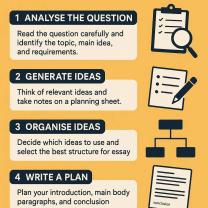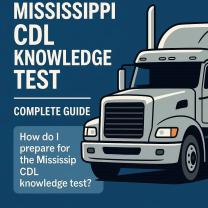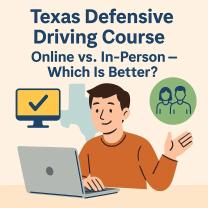What is pre license education?
Embarking on a new professional career in a highly regulated industry often comes with a crucial first step: pre-license education. Whether you dream of helping clients buy their first home, securing their financial future with insurance, or navigating the complexities of the mortgage market, a government-mandated educational component is your required gateway to the field. It’s an essential barrier that ensures only knowledgeable and qualified individuals are granted the privilege of a professional license.
These structured courses are meticulously designed to ensure every candidate possesses a foundational understanding of the critical laws, ethical regulations, and core industry practices necessary to protect the public interest. By completing pre-license education, you are demonstrating to state regulators that you are prepared to operate legally, ethically, and competently from day one. It is a fundamental investment in your career, setting the stage for you to pass the state licensing exam and build a credible practice.
This article provides a clear breakdown of what pre-license education is, why it's a non-negotiable requirement, the key subjects you will study, and practical steps on how to enroll and get started on your journey toward a professional license. Understanding this initial step is key to launching a successful and compliant career in any regulated industry.
What Is Pre-License Education?
Pre-license education, often referred to as prelicensure or pre-licensing training, is the state-mandated training that prospective professionals must complete before they are eligible to take a licensing examination and apply for a professional license. It is the core educational requirement set forth by state regulatory bodies to ensure a standardized level of competency across the industry.
This mandatory training is a common feature in professions where public trust and financial transactions are paramount. You will find that pre-license education is required for:
Real Estate Agents and Brokers: To learn property law, contracts, and ethical representation.
Insurance Producers (Agents/Brokers): To study different lines of authority like Life, Health, Property, and Casualty, along with state-specific regulations.
Mortgage Loan Officers (MLOs): To master federal and state lending laws, compliance, and consumer protection acts.
Securities Professionals and other financial roles.
The primary purpose of pre-license education is threefold: to provide candidates with the foundational knowledge required to pass the rigorous state-specific licensing exam, to instill a sense of professional responsibility and ethics, and to ensure they can competently and legally perform their duties once licensed. It is the crucial first step on the path to earning your professional license.
Why Is Pre-License Education Required?
The requirement for mandatory pre-license education is not simply an administrative hurdle; it is a fundamental pillar of consumer protection and industry stability. In professions that involve large financial transactions, complex contracts, and direct public trust, regulatory bodies must establish a minimum standard of professional competence and conduct.
Here are the key reasons why pre-license education is a non-negotiable requirement:
Protecting Consumers and Public Trust
The most critical function of pre-license education is protecting consumers. By completing these courses, a candidate is educated on the proper, legal, and ethical procedures for transactions. This drastically reduces the risk of consumers falling victim to scams, unprofessional service, or financial harm due to an agent’s ignorance of the law.
Maintaining Professional Standards
Regulatory boards, like the state Real Estate Commission or Department of Insurance, use these courses to define and maintain high professional standards for the industry. The curriculum ensures that all new entrants understand not only the 'how-to' of the job but also the 'must-do' legal and ethical obligations. This continuous reinforcement of industry best practices ensures the public retains faith in the regulated profession.
Ensuring Legal Compliance and Ethical Practices
The consequences of non-compliance in fields like real estate and finance can be severe, leading to hefty fines, legal action, or license revocation. Pre-license courses focus heavily on state and federal laws to ensure a new professional understands the critical role of legal compliance. Furthermore, a significant portion of the curriculum is dedicated to ethics, teaching future licensees how to handle potential conflicts of interest, disclosures, and fair business practices.
Establishing Credibility for Licensing
Finally, successful completion of the pre-license education is what officially qualifies you to sit for the state licensing exam. It acts as an official endorsement that you have completed the minimum required training, thereby establishing credibility within a highly regulated industry.
What Subjects Are Covered in Pre-License Courses?
The subjects covered in pre-license courses explained are tailored to be both general enough to prepare you for the national portion of an exam and specific enough to cover state laws. The curriculum is meticulously crafted to equip students with the necessary tools to navigate their future professional environment.
Here are examples of the core subjects based on the profession:
| Industry | Core Subject Areas Covered | Focus and Purpose |
| Real Estate | Property Law, Contracts, Agency Relationships, Finance, Ethics, Fair Housing Laws, and Appraisal Basics. | Equips students with the legal foundation for representing buyers and sellers, writing binding contracts, and ensuring non-discriminatory practice. |
| Insurance | Policy Types (Life, Health, P&C), Underwriting, State and Federal Regulations, Insurable Interest, Ethics, and Claims. | Prepares future producers to understand, explain, and ethically sell complex financial products while adhering to consumer protection laws. |
| Finance/Mortgages (MLO) | The SAFE Act, TILA (Truth in Lending Act), RESPA (Real Estate Settlement Procedures Act), Compliance, Ethics, and Consumer Protection. | Teaches candidates the strict federal and state lending laws that govern all aspects of the mortgage origination process to prevent predatory lending. |
The subjects covered serve to equip students to not only pass the required licensing exams but also to establish a strong, compliant foundation for their careers in practice.
How Long Does Pre-License Education Take?
The duration of pre-license education is not uniform; it varies significantly by state and industry. This variation is due to the complexity and regulatory risk level associated with each profession, as well as each state's individual requirements.
Course Length by Industry and State
The required class/clock hours for pre-license education requirements can range widely:
Real Estate: The requirements are typically higher due to the complexity of property law and transaction processes. Requirements commonly range from 40 to over 180 hours. For example, a state might require 60 hours for a salesperson license, while a state with more stringent rules might mandate 168 hours of coursework.
Insurance: The length is usually determined by the "line of authority" (e.g., Life, Health, Property, or Casualty). Most states require about 20 hours per line of authority, leading to a common range of 20 to 40 hours for a combined license.
Flexible Formats and Delivery Methods
Most regulatory bodies recognize the need for flexibility for individuals transitioning into a new career, offering a variety of course formats:
Online/On-Demand: This flexible format allows students to review material at their own pace, making it popular for those who are currently employed. Many state-approved courses are available through accredited online providers.
Live Classroom: A traditional format that offers real-time instruction and person-to-person interaction with an instructor and other students.
Distance Learning/Virtual Classroom: A hybrid option that uses web conferencing technology to deliver live, real-time instruction, simulating the classroom experience from a remote location.
It is critical to check your state’s rules, as some require a minimum number of live instruction hours, while others allow for entirely self-paced, asynchronous learning.
How Do I Enroll in Pre-License Education Programs?
Enrolling in a pre-license education program is a straightforward process, but it requires careful attention to state-specific rules. Following these steps will ensure your coursework is accepted by your state's licensing board.
Step-by-Step Enrollment Guide
Check State Licensing Board Requirements: Before doing anything else, visit the official website for your state's regulating body (e.g., the State Real Estate Commission or Department of Insurance). They will provide the official, up-to-date pre-license education requirements for your chosen profession. This information includes the minimum number of hours, the required subjects, and the maximum time allowed to complete the course.
Choose an Accredited Provider: The training is only valid if it is from an approved school. The state licensing board will maintain a list of certified, state-approved education providers. Enrolling with a non-approved school means your time and money will be wasted.
Select a Delivery Format: Decide which format best suits your learning style and schedule: online self-study, live classroom, or a hybrid/virtual course.
Register and Complete Coursework: Pay the tuition fee, register for the course, and begin your studies. You must pass the provider's final course exam, which is often proctored, before you receive a Certificate of Completion.
Cost and Financial Considerations
The cost of pre-license education varies, typically ranging from a few hundred to over a thousand dollars, depending on the number of required hours and the school. Most providers offer multiple payment options. It is worth noting that some providers offer comprehensive packages that bundle the required education with essential exam prep materials, practice tests, and post-course support.
Frequently Asked Questions (FAQ)
Is pre-license education the same in every state?
No. While there is often a "national" portion of the curriculum that covers federal laws and general concepts, the majority of the coursework is state-specific. Each state sets its own required clock hours, mandatory subjects, and rules regarding acceptable delivery formats. This is why you must always check the requirements for the state in which you intend to be licensed.
Can I complete pre-license education online?
For most industries and states, yes, you can complete pre-license education online. Online courses offer maximum flexibility. However, some states require a specific number of live interaction hours, which can be fulfilled through a physical classroom or a virtual, real-time "Distance Learning" course with an instructor.
How long do I have after finishing courses to take the licensing exam?
This deadline is set by the state and can vary, but generally, your completion certificate is valid for a limited period, often six months to one year, from the date of issuance. If you do not pass the state licensing exam and apply for your license within that window, you may be required to retake the entire pre-license course.
Are pre-license education fees refundable if I don’t pass the exam?
Course fees are generally paid to the education provider, not the state, and are typically non-refundable once the course has been started or a certain time has passed. The course fee only covers the education itself, not the separate state licensing exam or application fees. Review the school’s refund policy carefully before enrolling.
Conclusion
Pre-license education is a vital step toward earning a professional license in any regulated industry. It is the mandatory, foundational training that not only prepares you to succeed on the demanding state licensing exam but also shapes you into a competent and ethical professional.
By completing a state-approved program, you are building a strong base of industry knowledge, ensuring consumer protection, and guaranteeing your compliance with the extensive framework of regulatory laws. This formal education provides the definition of what it means to be a qualified professional in your field.
Ready to launch your career? Your next step is to research your state’s specific requirements and enroll in a pre-license education program that aligns with your learning style and career goals. This investment in knowledge and credibility is the essential first move toward a rewarding professional future.














Career_Starter78
on October 05, 2025This article clearly defines what **pre-license education** is and why it's mandatory. It's helpful to see the exact purpose: consumer protection and maintaining professional standards. Great breakdown!
FinanceFanatic
on October 05, 2025The comparison table summarizing the subjects for real estate, insurance, and mortgages was excellent! It neatly outlines the core focus, whether it's the SAFE Act or general **pre-license courses explained**.